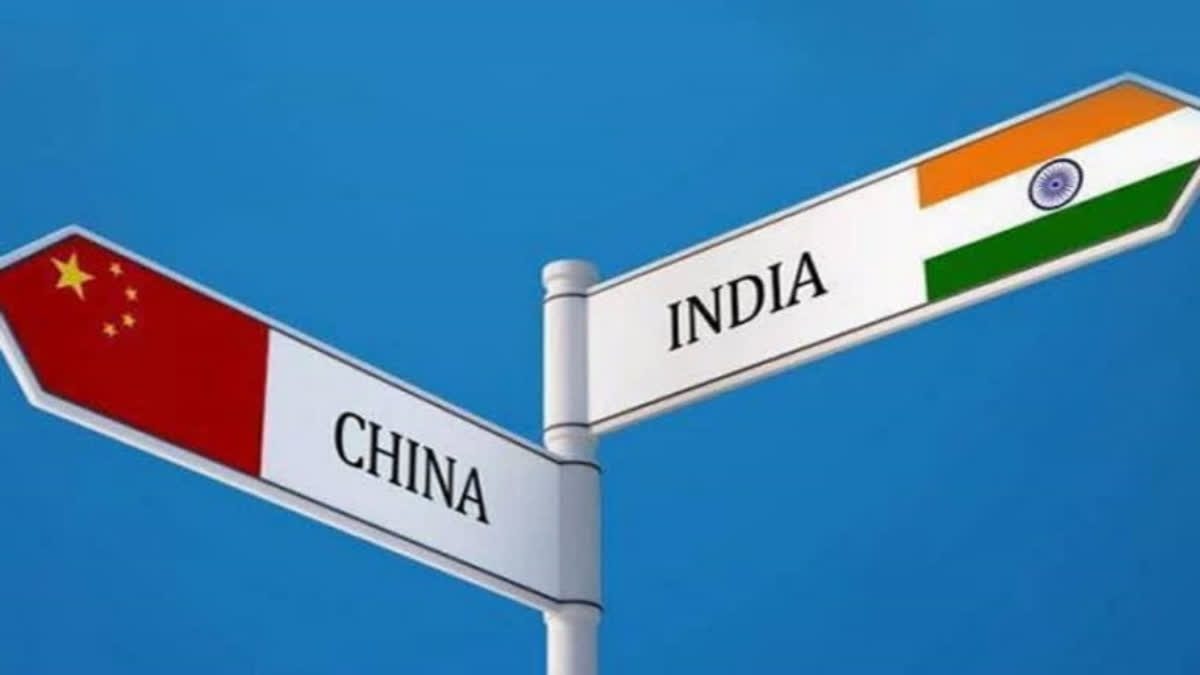New Delhi: India has vehemently voiced disapproval of China’s Belt and Road initiative (BRI) which is seen as one key takeaway from Tuesday’s SCO virtual summit. On the other hand, in the New Delhi Declaration of the SCO summit, Russia, Kazakhstan, Kyrgyz, Pakistan, and Uzbekistan have reaffirmed their support for China’s BRI initiative.
But one major question that pops up is what it is about the BRI project that irritates India and why New Delhi continues to oppose the initiative. ETV Bharat spoke to a foreign policy expert on this matter.
Prof Harsh Pant, director of studies and head of the Strategic Studies Programme, Observer Research Foundation, New Delhi, said, “India has been a strong critic of the BRI from the very beginning and was the first country to draw attention to the problems that a project like BRI might engender and most of what India had said at the very beginning has come true”.
He said that India has strong credentials when it comes to BRI and New Delhi continues to be a critic of the Belt and Road initiative. “During the SCO summit, China was trying to push through its BRI agenda using SCO as the platform, perhaps it was trying to be too clever by half. But India has maintained its consistent stand and it was well articulated by Prime Minister Narendra Modi during the summit. India, therefore, managed to underscore its reservation, at the same time making it clear that it will not budge from its position," added Pant.
Prime Minister Narendra Modi during his remarks at the SCO summit, articulated strong opposition to China’s BRI project and refused to sign the declaration. The Delhi declaration of the SCO heads of the council said, “Reaffirming their support for China's Belt and Road Initiative (BRI) initiative, the Republic of Kazakhstan, Kyrgyz Republic, Islamic Republic of Pakistan, Russian Federation, Republic of Tajikistan and the Republic of Uzbekistan note the ongoing work to jointly implement this project, including efforts to link the construction of the Eurasian Economic Union and BRI”.
Speaking at the summit, Prime Minister Narendra Modi said, “Strong connectivity is crucial for the progress of any region. Better connectivity not only enhances mutual trade but also fosters mutual trust. However, in these efforts, it is essential to uphold the basic principles of the SCO charter, particularly respecting the sovereignty and territorial integrity of the Member States”.
At the end of the virtual summit, India became the only country to have refused to sign the paragraph in the Delhi Declaration supporting the BRI which is Chinese president xi jinping’s very dear and crucial project to maintain its strategic influence in the region.
Furthermore, Professor Pant said, “India’s criticism of BRI is based first on the fact that the project includes the China-Pakistan Economic Corridor (CPEC) which passes through Pakistan occupied territory and New Delhi continues to resist that and underscore that because it is a disputed territory. China by undertaking a project of this kind through that territory, is also making its support for one side over the other and that message from India has been quite consistent”.
Ever since China launched the BRI project and many countries started to sign up for it, India has continuously opposed it with even External Affairs Minister Dr S Jaishankar voicing concern about the infrastructure project at various global forums. “In the last few years, it is not simply about India’s reservation on this matter but it is also about the way China has envisioned the project, which is a very top-down project without taking into account the local conditions of the countries concerned, the financial and environmental sustainability of many of these projects and without enhancing the local capacity in the countries in which these projects are undertaken."
"As a result, a lot of projects had fallen by the wayside. Many countries acquired huge debts because of the lack of financial viability of these projects. India’s criticism of BRI initiative has a very broad embed and most of it has proven to be right and New Delhi will continue to resist it with partners and if necessary alone," underlines Prof Pant.
India was of the firm opinion that this project violates sovereignty and territorial integrity as well as international laws. Moreover, given its ties with China, what concerns India the most was that the project will further boost Beijing’s strategic presence in the region and the fact that such a project would make many countries (especially small countries) indebted to China.
What is BRI
China’s Belt and Road Initiative (BRI) is a strategic initiative by the Chinese government that seeks to connect Asia with Africa and Europe via land and maritime networks to improve regional integration, increase trade, and stimulate economic growth. The name was founded in 2013 by China’s President Xi Jinping, who drew inspiration from the concept of the Silk Road established during the Han Dynasty 2,000 years ago – an ancient network of trade routes that connected China to the Mediterranean via Eurasia for centuries. The BRI has also been referred to in the past as 'One Belt One Road'.
The BRI links China with Southeast Asia, South Asia, Central Asia, Russia, and Europe by land – and a 21st century Maritime Silk Road, a sea route connecting China’s coastal regions with Southeast and South Asia, the South Pacific, the Middle East, and Eastern Africa, all the way to Europe.
Also read:Is China forcing Nepal to accept projects under BRI?
